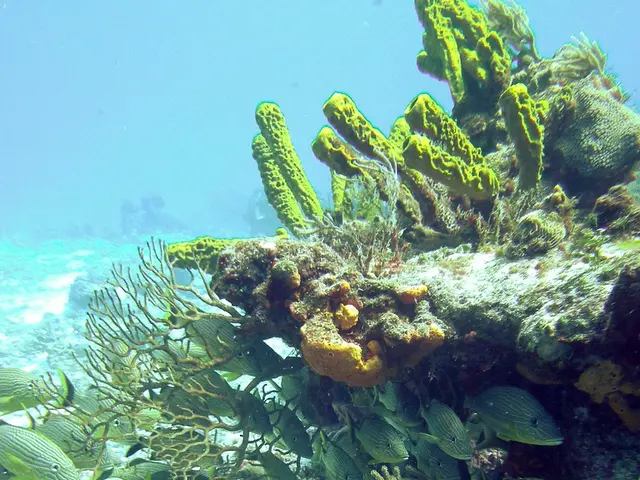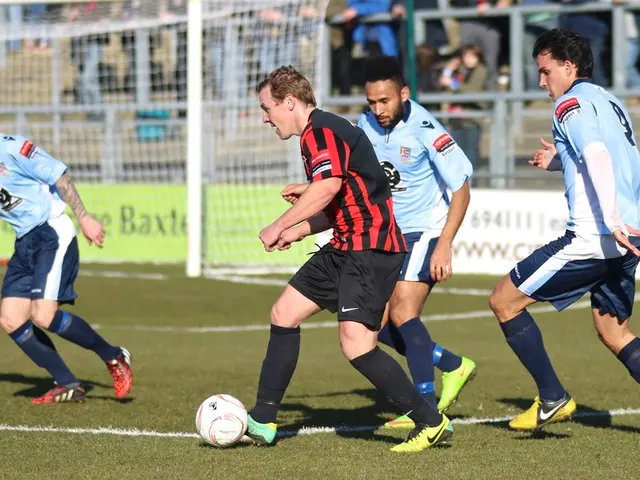Approximately 10,000 lifeguards stationed across North Rhine-Westphalia during summer months. - Almost 10,000 lifeguards deployed during summer in North Rhine-Westphalia (NRW)
Named Sources: German Life Saving Association (DLRG), North Rhine-Westphalia (NRW)
This summer, nearly 10,000 lifeguards from the German Life Saving Association (DLRG) will safeguard bathers and water sports enthusiasts across North Rhine-Westphalia (NRW). For the third consecutive year, the number of volunteer lifeguards in Germany's most populous federal state will surpass 9,500, according to the DLRG.
Over 200 lakes and rivers in NRW will be under their watchful eyes, as well as close to 200 swimming pools, where they will provide supplementary supervision. "We intervene in capsized boats, offer emergency assistance, search for missing individuals, and respond when there's distress in the water," said Stefan Albrecht, president of DLRG North Rhine.
In the previous two years alone, DLRG lifeguards in NRW rescued over 230 people from drowning and provided aid to approximately 9,000 individuals. However, it is impossible for lifeguards to be everywhere, particularly in unguarded rivers and lakes where tragic drowning incidents still occur. Last year, 57 individuals drowned in NRW—an increase of ten compared to the year prior.
The DLRG plans to boost awareness about these dangers in the future. "Swimming in the Rhine is ill-advised," emphasized Albrecht. The Düsseldorf Fire Department recently echoed this warning, stating that swimming in the Rhine is deadly. Furthermore, the DLRG has raised concerns about hazards such as jumping into cold water, as the sudden temperature difference can affect the heart and circulatory system. Entering unfamiliar or murky waters poses additional risks.
Membership in the DLRG in NRW is at an all-time high, boasting over 164,000 members at the end of 2024—13,000 more than ten years ago. "Our membership has yet again set a record," explained Albrecht. The ranks of volunteer swimming instructors and lifeguards have also significantly grown compared to ten years ago. Since 2017, junior teams for water service have been gaining popularity.
In 2024, over 9,100 volunteers were involved in swimming instruction. As in 2023 and prior to the COVID-19 pandemic, they helped nearly 11,000 children earn the Seepferdchen badge, symbolizing the beginnings of learning to swim. Approximately 21,600 children, young people, and adults in NRW received a bronze, silver, or gold swimming badge.
Lifeguards from NRW are also active outside the federal state. At least 1,000 lifeguards from the two DLRG associations in NRW offer support to the water rescue service at the North and Baltic Seas during the summer. They generally spend one to two weeks of their vacation or holidays there, watching over vacationers at one of the around 100 guarded beach sections between Borkum and Usedom. The seaside resorts cover travel costs, provide accommodations, and pay a per diem and meal allowance.
In an endeavor to enhance safety measures, the DLRG, North Rhine-Westphalia (NRW) has proposed that besides community policy, vocational training for lifeguards will be augmented this year. This move aims to equip lifeguards with the necessary skills in various aspects of health-and-wellness, fitness-and-exercise, and sports, to better respond to emergencies and provide aid efficiently. Moreover, the DLRG recognizes the importance of promoting awareness in science, advocating for responsible choices like avoiding swimming in unsuitable bodies of water, and providing guidance on potential risks associated with cold water and unfamiliar waters.








